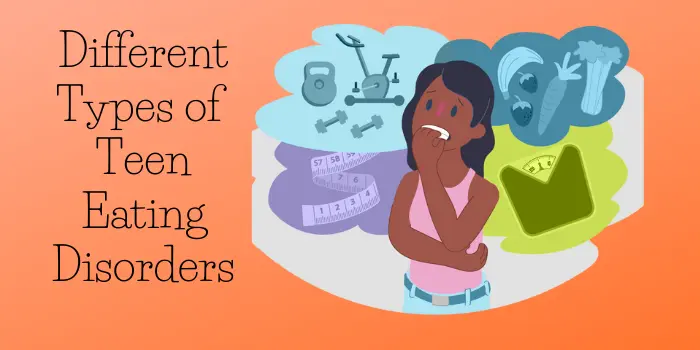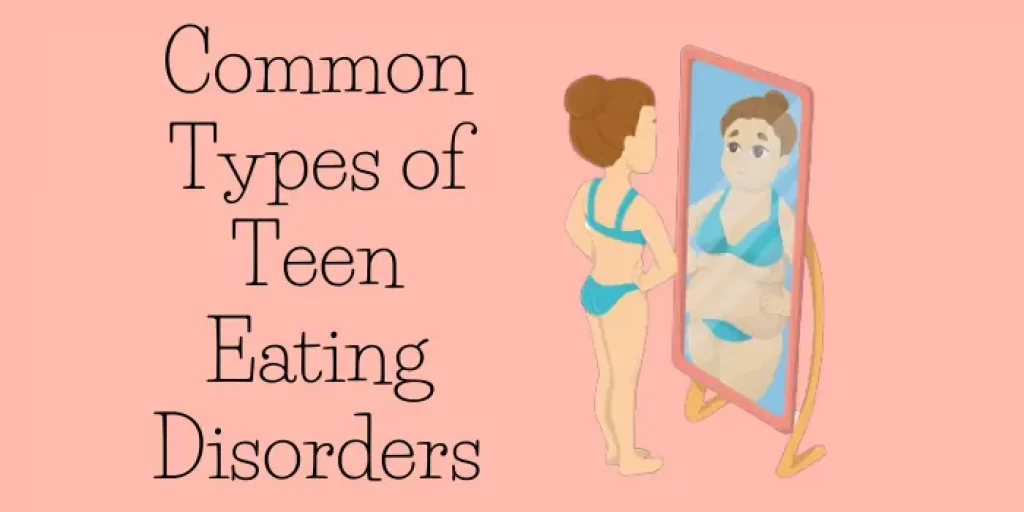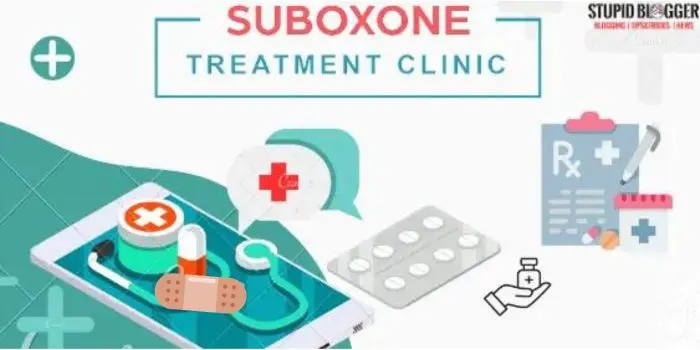
Teenage life can be tough. There is a lot of pressure on people to conform to certain standards of beauty and behavior in order to be accepted and avoid bullying or teasing. High-pressure sports can cause stress and anxiety, along with a need to maintain a slim or muscular body.
All of this, along with rigorous academics, intense pressure to succeed or fit in, and unstable or strict home life are just a few reasons why many can suffer unhealthy amounts of stress leading to poor mental health, poor self-care, and eating disorders in teens.
Furthermore, during the height of the Covid pandemic, the isolation caused a shocking spike in eating disorders, likely due to increased depression from remaining indoors without a physical connection to friends, the loss of a standard routine, boredom, and natural anxiety about the pandemic itself.
While the pandemic is no longer the same threat that it once was, there are still residual effects that can take a toll on teens. Meanwhile, the other stressors that lead to a poor body image are still waiting in the wings.
It’s important to understand the different types of teen eating disorders and to be able to recognize them so that if you learn your teen is suffering from one (or more), You can get them the support and resources they need.
Keep in mind, if someone in your family suffers from an eating disorder, that may increase the chance that your teen will, too.
Common Types of Teen Eating Disorders
There are several types of eating disorders prevalent in teens. However, some of them are similar to one another, so it’s important to be able to understand the symptoms of each one so that you can not only identify that your teen may have an eating disorder but also gain a good idea of which one if you suspect that they do,

Anorexia
A teen that is overly concerned with weight loss, even if they seem thin, may possibly suffer from anorexia. They may suffer from body dysmorphia, which means that they view themselves as “fat”, even when they are not.
They may exemplify an intense desire to remain thin, often carefully scrutinizing the number of calories in food. They may sometimes make comments about how they look fat when they are not or have an intense fear of gaining weight.
Anorexic teens may intentionally fast at times or participate in rigorous exercise programs. In more extreme cases, they may use supplemental methods such as diet pills, laxatives, or even enemas to produce a drop in body weight.
Unfortunately, anorexia can leave teens woozy or lightheaded, and they may suffer constipation. It can also result in slower heartbeats that cause low blood pressure. The corresponding lack of suitable nutrients can even slow growth and be detrimental to bone density.
There are mental consequences as well, including depression, anxiety, or even thoughts of hurting themselves.
Binge Eating
Teens that binge eat generally consume food faster than normal, and often seem to lack control over how much they eat. They may consume large quantities of food in a single sitting, even when they are not hungry, which can cause them to suffer anxiety about their weight.
As a result, they may feel ashamed and try to hide how much they eat, possibly hoarding food in their rooms or secret locations, so they can eat alone without feeling judged.
Often, this abrupt and exorbitant intake of food can cause significant weight gain, which can be another cause of the teen’s depression or anxiety. Other mental issues they may face are low-self esteem, feelings of helplessness, and thoughts of self-harm. These negative feelings may also make them susceptible to drug or alcohol use.
In addition to low blood pressure, binge-eating teens may experience swollen cheeks, sleep apnea, high cholesterol, and blood pressure, as well as other ailments such as diabetes.
Bulimia
Bulimia is essentially binge eating, but with added consequences. While teens who only binge eat often feel guilty or upset at their actions, they do not usually do anything to mitigate their actions.
Those who suffer from bulimia will often make themselves vomit after eating, take laxatives or unhealthy supplements to reduce weight, compensate with additional exercise, or do other actions designed to counterbalance their binge eating.
Unlike those suffering from anxiety, who are often thin, those with bulimia can be virtually any weight. Since they often hide their binging and purging, it’s important to keep a close eye on any teen that shows potential symptoms.
In addition to common binge eating symptoms, those with bulimia may experience a lot of cavities or unusual tooth erosion and blood in vomit or stool.
Avoidant/Restrictive Food Intake Disorder
This is perhaps one of the hardest disorders to detect in teens because there are not as many tell-tale signs as other common eating disorders.
ARFID is the result of a teen’s disinterest in food or active desire to avoid foods. Unlike the other common disorders, this has nothing to do with body image or a fear of weight gain. Instead, it’s often because they find food unappealing, either because of its appearance, smell, texture, taste, or even color.
For whatever reason, food is often unpleasant to them and, as teens often do, they go out of their way to avoid things that do not appeal to them or cause them strife.
In some cases, the issue may be an unnatural fear of choking or vomiting, potentially caused by a previous bad experience with one or both of those actions.
Unless the teen offers an explanation for why they are uninterested in food, the only other major indicator that they may be suffering a disorder is either significant weight loss or a refusal to eat at all.
Teens with ARFID may have anxiety or suffer ailments that can cause a hypersensitivity to texture or other specific stimuli, such as ADHA, obsessive-compulsive disorder, or autism spectrum disorder.
The lack of nutrition can cause a lot of body deficiencies which impede growth and good health, as they do not get enough vitamins or other necessities from food.
What Can I Do To Help?
You are already taking the first step by learning more about eating disorders.
Always be supportive and let your teen know that you love them and are there for them, willing to help them find the appropriate treatment.
Doctors, dietitians, and therapists are all professionals trained to help teens deal with eating disorders as well as their mental health concerns. Often, it is helpful to include all three to design the best treatment plan.
Medication, nutrition counseling, and different types of therapy are important steps to help understand, treat, and recover from eating disorders.
Remember, there is always help available. The National Eating Disorders Hotline is an important source willing to help you and your teen with useful information and treatment options. Here are some other articles which you may prefer to read.











